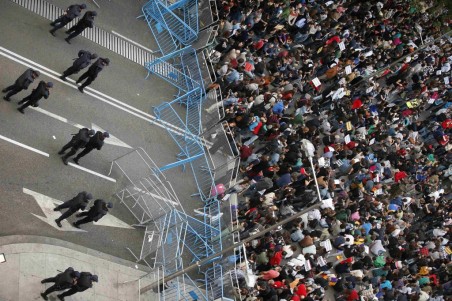We all have read or written about golden rules in crisis management that more or less are the same. However there is one rule that it is not usually mentioned and that would be “Be aware of the context and the external factors”.
Let’s say we prepare a crisis management plan with all necessary steps and actions and we put it in the drawer. After a couple of months or even some days, this plan might be totally obsolete. The framework of macro-environmental factors set the foundation of our crisis management plan. If we fail in our environmental scanning then our plan might be standing on a foundation of straw.
I am thinking of several examples that companies failed in their estimates about the external factors and they implemented crisis management plans that could not adapt in the macro-environment. For example a newly elected government with radical approach somewhere in the world might have an effect on different aspects of a company’s operations which should be under consideration when planning crisis management response. An environmental disaster would not create the same reaction in all the countries of the world. Some societies have more radical and strong unions than others and this something that a corporation should take into consideration when making a decision about labour issues.
A crisis management plan should be adaptable to various factors. We are not about a simple PEST analysis. The macro-environment includes political, economic, social, technological, environmental, intercultural, environmental, ethical, educational, physical, religious, regulatory, and security factors that we should be aware of.
The environmental scanning is a component of strategic management and it must be part of the daily activity of the organization. Part of the job description of the corporate communications team is to feed the management of the organization with all the necessary information that might contribute to the crisis management planning. Information of the public sphere should be incorporated in the process of preparation for a crisis.
The opinions expressed in this article are those of the author, and they do not reflect in any way those of his various affiliations.


Pingback: The domino effect in issues management and crisis communications | Crisis Analytics